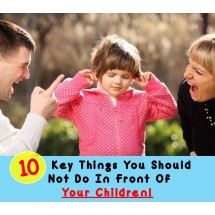
Post Partum Depression (PDD), or also known as Post Natal Depression, is a feeling of sadness, misery, loneliness, insecurity and incompetence usually felt by women after giving birth.
Studies revealed that 30% of women who have given birth experience PDD. This makes it a normal yet crucial condition which women should battle to avoid severe complications. If not properly treated, PDD may indirectly have dire effects on an infant’s growth and development.
What is the Cause of PDD?
The exact cause of PDD is unclear. Some women may be genetically more vulnerable than others to postpartum depression. However it is believed that stressful events after childbirth such as feelings of isolation, worry, and responsibility about the new baby may be the main cause of PDD.
What are the Signs and Symptoms of PDD?
PDD is characterized by the following signs:
• Loss of motivation
• Restlessness or irritability
• A lot of crying
• Eating beyond normal amount (either too small or too much)
• Feeling guilty or worthless
• Loss of interest in engaging in pleasurable activities
• Isolation
How you can battle PDD?
Battling PDD has no standard formula because its intensity differs from one woman to another. However, you can take the following steps into consideration to help you cope with your depression:
1. Forgive and accept yourself. Most importantly, acknowledge your negative feelings and know that it is okay to seek help from others.
2. Join a support group. The support group can be online or offline. Either way, it is comforting and liberating when you share your experiences to others, and know that there are many others feeling the same way as you.
3. Take plenty of rest and find time to sleep.
4. Engage in relaxation exercise such as yoga, pilates, meditation or massages. Relaxation opens the mind to happy thoughts.
5. Be aware of your thoughts and think positive. Entertain thoughts or ideas which are optimistic, and try to appreciate and be grateful of the little things around you. The thought of you giving birth is actually a blessing to be thankful about.
6. Talk to someone. Refrain from being alone and seek the company of close friends and family. Ask someone you trust and be comfortable with to be by your side as much as possible.
7. Indulge in your partner’s embrace. The human touch is a powerful tool and has profound healing effects. This is the best time for you to enjoy each other’s presence.
Edited by Crystal Tan






